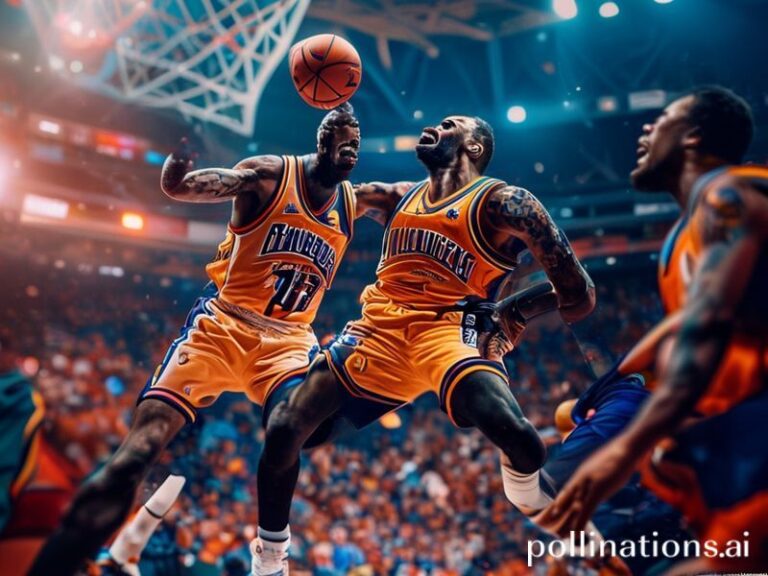Bristol vs Oxford: The Tiny Match That Hypnotized the Planet While Rome Burned
Bristol City vs Oxford United: Two Sleepy English Towns Attempt the Beautiful Game While the Planet Burns
LONDON—Somewhere between the cheddar-scented fog of Bristol and the dreaming spires of Oxford, 22 men in fluorescent boots will chase a ball across a rectangle of hyper-manicured grass this Saturday, blissfully unaware that half the world is either underwater or on fire. The fixture—Bristol City vs Oxford United, a second-tier promotion scrap so parochial it makes Eurovision look like the UN Security Council—has nevertheless been beamed to 187 countries via subscription streams, proving that humanity will pay actual money to watch anything that distracts from the slow-motion apocalypse outside the living-room window.
From Jakarta to Johannesburg, armchair insomniacs will tune in at ungodly hours to witness the Robins (nickname stolen from a bird that no longer migrates because climate change ruined its calendar) face the U’s (nickname stolen from the alphabet, presumably the only book some of their academy lads have opened). The global audience is projected at 1.3 million—roughly the population of Estonia, which coincidentally spent the week warning that Russian GPS jamming may accidentally redirect NATO drones into the very stadium these teams inhabit. If that happens, at least the highlight reels will finally go viral beyond the League OneTwitter bubble.
What, you ask, could possibly justify such planetary attention? Nothing, and that’s the beauty of it. In Damascus, a father who hasn’t had reliable electricity since 2013 will buffer the match on a cracked phone screen, praying the generator juice lasts until halftime. In Vancouver, a graduate student researching coastal erosion will procrastinate by gambling micro-stakes on which centre-back gets the first yellow, because nothing eases eco-anxiety like watching strangers risk ACL tears for a wage that wouldn’t cover one semester’s tuition. Meanwhile, the clubs’ owners—one a Cayman-registered hedge fund, the other a tax-exempt “community trust” that mysteriously posts eight-figure profits—will pocket the broadcast pennies and wonder how soon they can rebrand the stadium after a cryptocurrency that will be worthless by Christmas.
The geopolitical subplot is delicious. Bristol’s star striker is on loan from a Ukrainian side whose home ground doubles as an air-raid shelter; Oxford’s midfield prodigy turned down a move to Turkey after his father googled “earthquake probability map” and discovered the fault line running under the proposed apartment. Both players will be watched by scouts from Qatari, Saudi and Emirati clubs whose sovereign wealth rests on the same fossil fuels currently barbecuing the planet that sponsors their shirts. Should either lad score, the celebration will be auto-censored in China if it includes any hand gesture that remotely resembles support for Hong Kong, Taiwan or the concept of wages that arrive on time.
Yet the game matters, insist the pundits, because promotion to the Premier League is worth £170 million—enough to buy 340 electric buses or one medium-sized warship, depending on whether your government pretends to care about emissions or migrants this fiscal quarter. The irony, of course, is that the windfall will immediately be spent on transfer fees to agents who park their Bentleys outside the same stadium food banks the clubs tweet about every December. Still, the ritual endures: fans will sing about “going up, up, up” while sea levels do exactly that outside the riverside stands.
When the final whistle blows, half the players will drop to their knees, either exhausted or praying that the algorithm grades their performance high enough for a FIFA upgrade. Viewers will close their laptops and re-enter reality: wildfires, inflation, the creeping suspicion that democracy was a two-season limited series. But for ninety minutes plus stoppage time—already inflated because VAR reviews take longer than a Russian conscription hearing—planet Earth agreed to worry about whether a ball crossed a line. And that, dear reader, is the most international consensus we’ve achieved all year.







